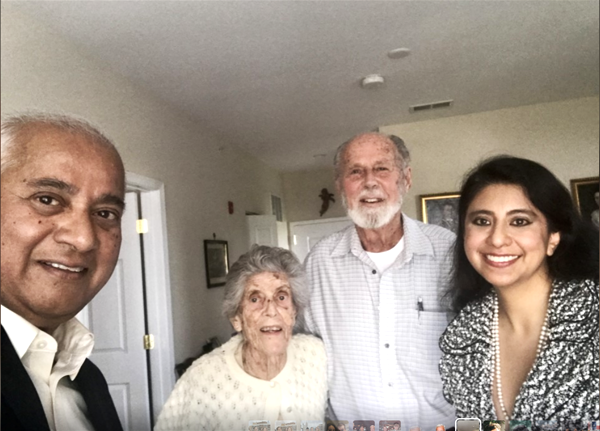Introduction
Is thinking in Islam called for? Absolutely. The Quran itself is filled with verses that invite reflection, reasoning, and contemplation. For years, I’ve used the slogan: “If it is not common sense, then it is not Islam. ©” This message is also reflected in my work at World Muslim Congress.
For nearly two years, I’ve been compiling verses that directly call the reader to think, reason, and reflect. One of the verses I recite frequently during Interfaith Marriages has inspired much of this reflection:
Quranic Verse on Reflection
Arabic Text
وَمِنْ آيَاتِهِ أَنْ خَلَقَ لَكُم مِّنْ أَنفُسِكُمْ أَزْوَاجًا لِّتَسْكُنُوا إِلَيْهَا وَجَعَلَ بَيْنَكُم مَّوَدَّةً وَرَحْمَةً إِنَّ فِي ذَٰلِكَ لَآيَاتٍ لِّقَوْمٍ يَتَفَكَّرُونَ
Translations Compared
- Mohammad Asad: “And among His wonders is this: He creates for you mates out of your own kind so that you might incline towards them, and He engenders love and tenderness between you: in this, behold, there are messages indeed for people who think.”
- Safi Kaskas: “And among His signs is that He created spouses for you from among yourselves, so that you may find peace with them, and He has placed affection and mercy between you. In this, there are signs for people who think.”
- Mustafa Khattab: “And one of His signs is that He created for you spouses from among yourselves so that you may find comfort in them. And He has placed between you compassion and mercy. Surely in this are signs for people who reflect.”
- Bijan Moeinian: “Another sign of the existence of God is the creation of your spouses from your own species so that [you do not suffer from loneliness and that] you may find tranquility [living next to each other.] It is God who sparks love between you. There are many subjects to reflect about this topic for those who use their brains.”
I was surprised by Bijan Moeinian’s translation. While I’ve rejected his translations elsewhere, this particular one brought clarity
Reflection on Creation and Human Bonds
My understanding is that God is the Rabbul Aalameen, the Creator of the entire universe. He does not differentiate between his creation, but provides guidance to live in peace, security and harmony.
Using Bijan’s phrase, “spouses from your own species so that you may find tranquility,” I reflect on the natural order: monkeys do not mate with dogs, dogs do not mate with tigers, and tigers do not mate with goats. Each species has its own mate. Likewise, humans are meant to find comfort within their own kind.
With 8 billion people on Earth, God guides two hearts to come together like a divine GPS. Most find peace and harmony; a few may fail. But the principle remains universal—love, harmony, and tranquility are part of creation’s design.
Personal Journey of Studying the Quran
I studied the Quran verse by verse, dedicating hours to questioning, reflecting, and understanding each one, if I did not get it, I will not go to the next verse. A special thanks goes to my friend Walid Kavalec from Houston, who developed the website Islam Awakened.
This site categorizes verses across:
- 38 generally accepted translations
- 12 controversial translations
- 5 non-Muslim translations
This resource is invaluable for reflection and comparative understanding. My hope is to create generic translations in the future so Hindus, Jains, Buddhists, and Sikhs can also relate to the Quran, as Quran is a book for all humanity.

Ambassador Bob Crane, his wife, MaryAnn Thompson-Frenk and Mike Ghouse. A visit to his home in Ashburn, VA – He is written volumes on his native American heritage, he was Assistant to President Nixon, the first Muslim Ambassador, and a great Muslim Scholar and has endorsed the book American Muslim Agenda. He encouraged me to keep up with Pluralism in Islam.
Thinking and Reasoning in the Quran
Dr. Safi Kaskas summarized an important insight on his Facebook page:
- “For those who think” appears 11 times in the Quran.
- “For those who reason” appears 22 times in the Quran.
Despite pressures from some to follow traditions blindly, the Quran emphasizes freedom to think and choose. Thinking in Islam is not optional—it is central.
Islamic Values and Reflection
In my 2018 book, American Muslim Agenda, I dedicated a new chapter to Islamic Values. I identified 20 key values, including:
- Justice
- Integrity
- Truthfulness
- Honesty
- Humility
- Forgiveness
Each value is supported by at least ten Quranic verses, showing how reflection leads to stronger societies.
Recently, my Imam friends have encouraged me to expand this into a dedicated book on Islamic values. Insha’Allah, I aim to publish this by next January, making these values accessible for teaching in mosques and colleges.
Verses That Encourage Thinking in Islam
Here are a few of the many verses:
- Al-Araf 8:2
- Ar-Ra’d 13:3
- Al-Imran 3:191
- Al-Jathiya 45:13
- Yunus 10:24
- Baqarah 2:219
- Baqarah 2:266
- Al-An’am 6:50
- Al-A’raf 7:176
- An-Nahl 16:69
- An-Nahl 16:11
- An-Nahl 16:44
- Az-Zumar 39:42
- Al-Hashr 59:21
Each verse is a reminder that the Quran is not simply a book of rituals—it is a guide for those who think.
Universal Message of the Quran
The Quran is not for Muslims alone. It is a guide for all of humanity—helping us understand:
- The Creator
- The creation
- The universal desires of beings: peace, security, and harmony
📖 Related Reading: Quran is not for Muslims – HuffPost
Additional Resources and Writings
- What is Progressive Islam
- American Muslim Agenda (Book)
- Who is a Muslim
- Sunni Muslim, is that who I am?
About the Author
Dr. Mike Mohamed Ghouse is President and founder of the Center for Pluralism and Director of the World Muslim Congress. He is also an Interfaith Wedding Officiant at Interfaith Marriages.
He is a Muslim, pluralist, activist, speaker, author, and social scientist dedicated to promoting peace and reflection
📌 Related Profiles:
FAQs on Thinking in Islam
Q1: Is thinking in Islam encouraged?
Yes. The Quran repeatedly emphasizes reflection and reasoning as essential to have confident faith.
Q2: How many times does the Quran mention thinking and reasoning?
The phrase “for those who think” appears 11 times, and “for those who reason” appears 22 times and there are several other versions emphasizing on thinking.
Q3: Why is reflection important in Islam?
Reflection leads to deeper understanding, stronger values, and a closer relationship with God also being righteous.
Q4: Is the Quran only for Muslims?
No. The Quran is a universal guide for all humanity, addressing peace, justice, and harmony.
Q5: What values in Islam require thinking?
Justice, truthfulness, honesty, humility, and integrity are among the many values supported by reflection.
Conclusion
Thinking in Islam is not only called for—it is a divine guidance. The Quran invites reflection, questioning, and reasoning as essential acts of faith. By using our intellect, we strengthen our values, build peaceful societies, and fulfill our purpose as beings created with the capacity to think.

